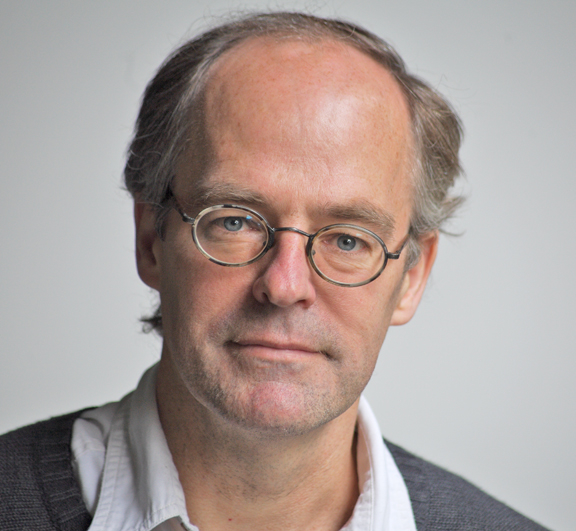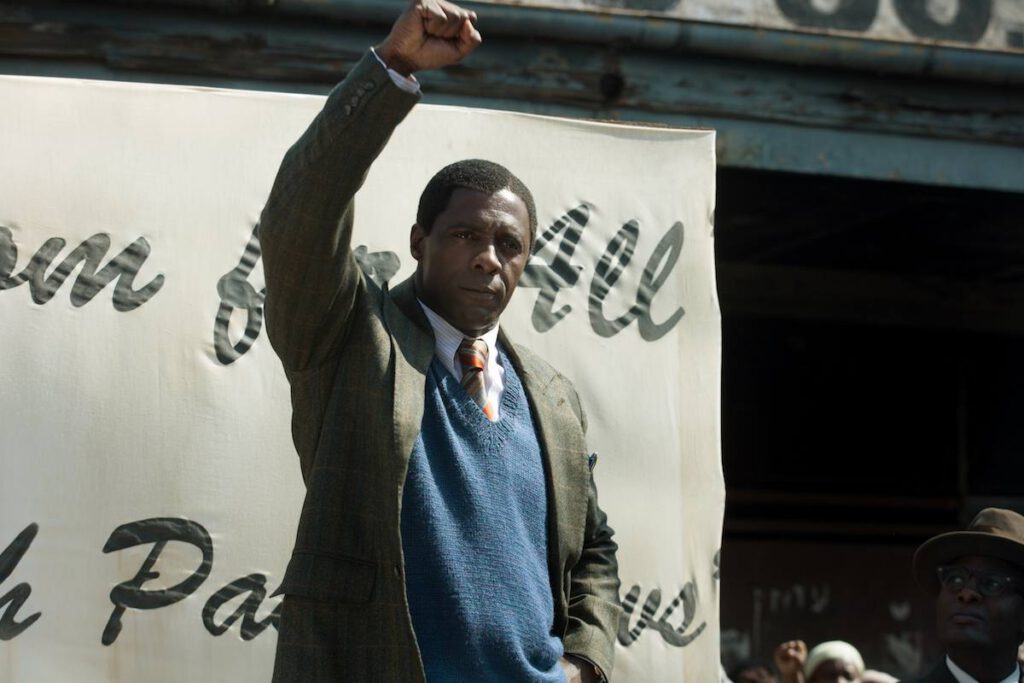A Weinstein Company trailer for “Mandela: Long Walk to Freedom” announces: “He was public enemy #1. Hunted by the police. Feared by the government. Revolutionary. Outlaw. Rebel. Fighter. Radical. Liberator.”
During an interview in Chicago, director Justin Chadwick is animated. His biopic of Nelson Mandela portrays the late South African as a lawyer, lover and leader.
On location in South Africa, the lines Chadwick recalls repeating to his cast and crew were: “‘It’s got to be true.’ ‘It’s got to be real.’ But the big one was every single scene was ‘this is the single most important scene of the movie!’ It really felt like that. We really had to get it true and right.”
“I was very conscious to listen and observe,” emphasizes Chadwick. “And this history is so present a lot of the men and women I talked to knew Mandela intimately. So it was beyond the history books.” Among the extras were first-hand witnesses to events Chadwick recreated.
“It was important for me not to put my own take on it,” Chadwick states. “I felt a responsibility to be true to the people I was representing. To be true to those people were were representing was key, absolutely key for all of us.”
“There are certain things you cannot include in your story,” he allows. A few memorable phrases stand in for historic declamations, like Mandela’s epic address to the Pretoria Supreme Court in 1964. “Nobody wants to see a movie four hours long of just one speech,” adds the director of this 141-minute version of Mandela’s 1994 autobiography “Long Walk to Freedom” that was scripted by William Nicholson (“Elizabeth: The Golden Age“).
“Mandela was very much alive and knew what we were doing when we were making the film,” adds Chadwick. “We showed the people we are representing in Johannesburg three weeks ago with the family… All of those people were there in the cinema with my own family, with my own wife. And they all talked about it being true to them and true to Mandela and true to the person they recognized, although he wasn’t well enough to come to the screening.”
“Mandela himself has said he doesn’t want to be remembered as a saint, he wants to be remembered as a man,” explains Chadwick. “And he was a man. He was a young man. He had hopes and ambitions and dreams that were just like any other young man who wanted to be the best at what he did, and have a family and have children, and be a great lawyer, and to be a success. And this pernicious evil, drip, drip, drip effect on him, it just did not stop. Everything I researched led back to this man and what it cost him as a man. And that he was a flesh and blood man who was a dad. Had hopes and dreams. I want my sons to go and watch that and see. I mean, isn’t that what makes his journey all the more extraordinary?”
In a small yet compelling scene, the elderly Mandela (Idris Elba) makes two boys at a family gathering apologize for their make-believe attacks on white members of a plain-clothes security detail. Chadwick was less effective in a Kenyan school house when shooting “The First Grader,” his 2010 biopic on Kimani Ng’ang’a Maruge. “They called me Teacher Justin but I remember the kids crawling under the desk and I’d be trying to teach them and they would be under the desk giggling in this classroom in this crowded school we were in, and they were pulling the hairs on my leg and laughing because they couldn’t believe someone had hairy legs.”
Chadwick cites the influence of Spike Lee. “I had seen ‘Do the Right Thing’ when I was at college and it was incredibly inspiring as a piece of cinema,” he says. “Just brilliant, I thought. But saw ‘Malcolm X’ with a crowded audience. It was my first time in an American cinema, hearing an audience respond. You know, in England everyone is so restrained. In there, you could feel this energy from the audience. People shouting up at the screen.”
In the one scene Chadwick sets in a cinema: Mandela surfaces from the radical underground and interrupts a screening of “The Last Time I Saw Paris” (1954). After quipping that Elizabeth Taylor is no Sophia Loren, he makes a quick speech on behalf of the African National Congress, then exits with a raised fist as he chants “Fight, fight, fight!” with the fired-up audience.
Watching the television coverage of the four-hour international memorial, Chadwick reacts as a director to what was unscripted at the First National Bank Stadium in Johannesburg: “I liked seeing it unfold. I think one of my favorite moments was the crowd when they had to make an appeal to the crowd to please calm down and stop celebrating because they couldn’t hear the dignitaries talk. I mean, that only could happen in South Africa.”












